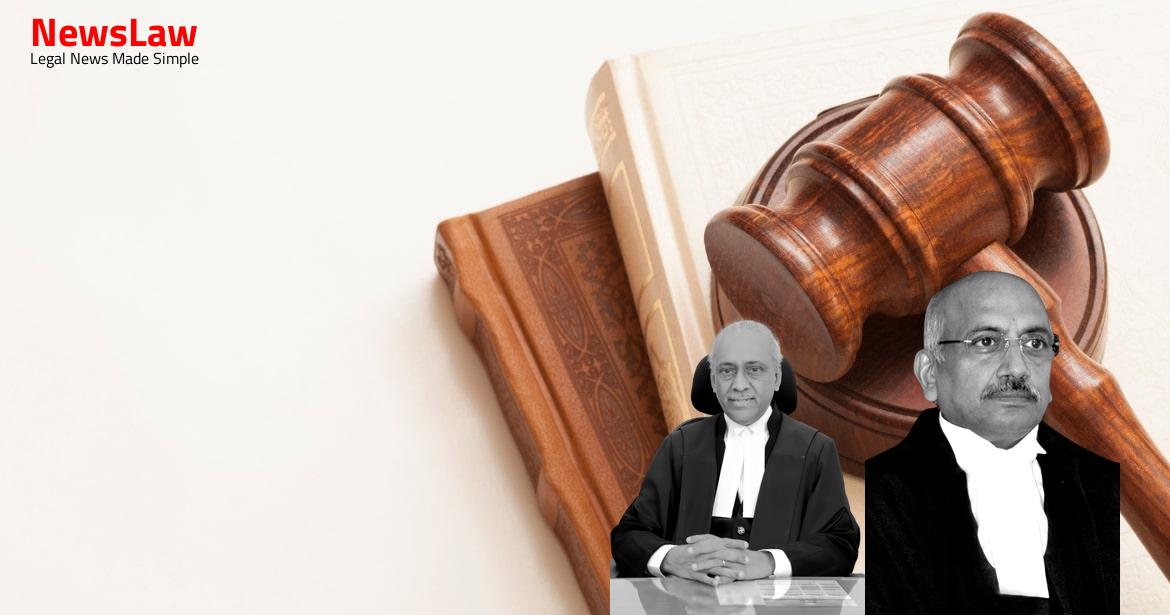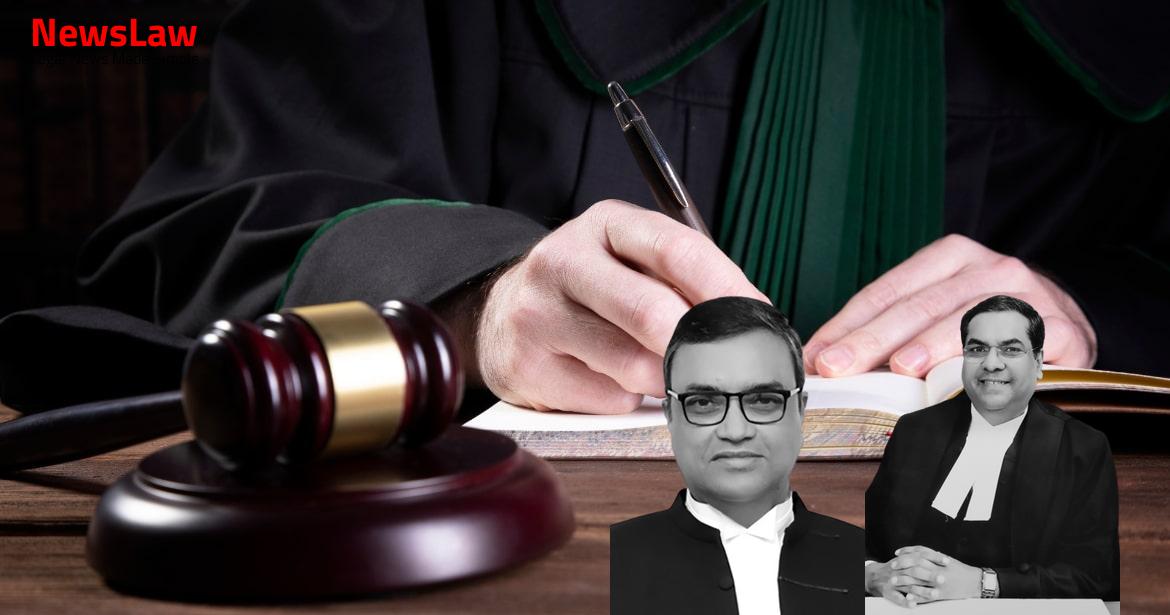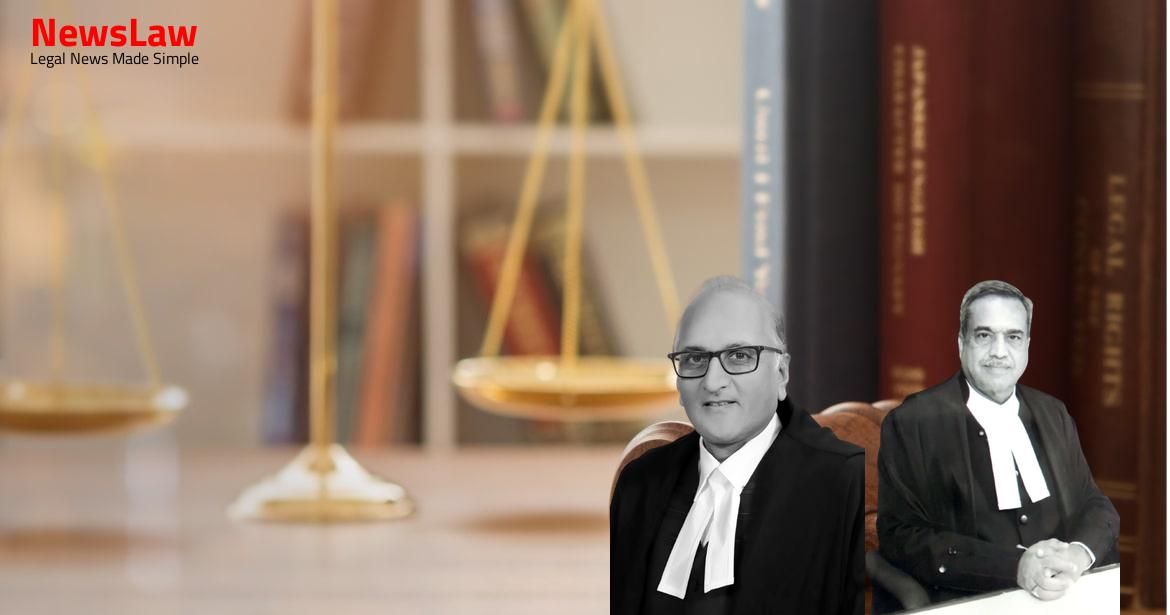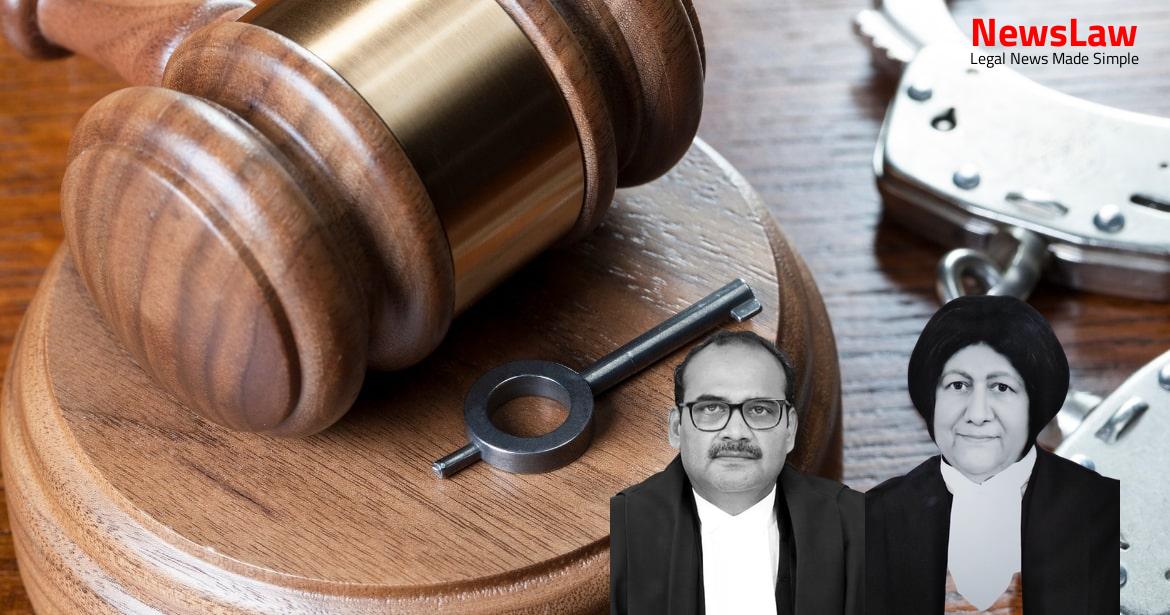Facts
- The NCDRC dismissed the revision filed by the appellant on 17.11.2017, citing Charanjit Kaur.
- The order under challenge in the third appeal, Civil Appeal No 4966 of 2021, is about the conversion of a residential site in Chandigarh from leasehold to freehold.
- The order in Charanjit Kaur was followed in this matter as well.
- The District Forum made a similar decision as in Charanjit Kaur regarding the conversion of the plot.
- The relevant provisions of the 1973 Rules were discussed.
- Section 3 of the Capital of Punjab (Development and Regulation) Act, 1952 was highlighted.
- The Chandigarh (Sale of Sites and Buildings) Rules, 1960 were initially put into effect.
- The NCDRC directed the conversion of the plot from leasehold to freehold, along with compensation and litigation costs.
- The NCDRC considered the respondent a consumer based on the conversion fee charged.
- The administrator’s hesitation to make a decision without clear directions from the Central Government was mentioned.
- It was noted that no public notification suspending all conversions of plots was produced by the appellant when the request for conversion was made.
Also Read: Interpretation of Will and Hindu Succession Act: Legal Analysis
Arguments
- Title of leasehold property vests with the Central Government as per Section 3 of the Act and Rules
- Conversion fee was part of the sale consideration to confer complete title to the allottee
- Conversion fee allows converting leasehold property to freehold property, absolving from annual rent payment and unearned increase payment
- Reliance on M.K. Gupta judgment was considered erroneous as it pertained to ‘service’ under Consumer Protection Act, 1986
- Charges paid for conversion were not for services but to grant complete title to allottees
Also Read: Land Compensation Redetermination Case
Analysis
- The High Court of Punjab & Haryana set aside the requirement of a no-objection certificate for sale of freehold properties by the Chandigarh Administration.
- The Chandigarh Administration was directed to re-examine Rule 17(10) of the 1973 Rules concerning unearned increase and the restriction on selling properties before specific years.
- Similar rules exist in the Chandigarh Estate Rules of 2007, and ad-hoc solutions are being implemented under Section 22 of the Act.
- Disputes in the High Court centered around a directive for 10% of the sale amount and references to previous cases such as Bachhittar Singh v. State of Punjab were made.
- The issue of whether auction of sites under the 1973 Rules constitutes sale of goods or services was discussed in UT Chandigarh Administration and Others v. Amarjeet Singh and Others, referencing M.K. Gupta and Balbir Singh cases.
- The lack of amenities concerning roads, water supply, and electricity on auctioned sites was addressed by the court, stating that bidders had the opportunity to verify sites before participating in the auction.
- The case involves the conversion of leasehold residential sites to freehold sites, with the Central Government retaining ownership until full payment as specified in Section 3 of the Act.
- Directions from the High Court allowed allottees to develop sites themselves or hire builders, considering such development as a statutory service.
- The Court cited relevant provisions from the Consumer Act, emphasizing that statutory service provided by a government authority cannot be deemed deficient based on notations alone.
- In the context of societies collecting funds for construction, the Court referenced M.K. Gupta’s case where 10% of the tentative price was collected and deposited in specific banks.
- The Central Government, as the owner, cannot be considered a trader or service provider.
- The statutory rules regarding conversion rates were under consideration and not on hold.
- Rates were eventually fixed in 2017 after a long delay.
- Communication of decisions to affected parties is essential for orders to be valid.
- Rules were kept in abeyance based on communication from the Finance Secretary, which is not acceptable.
- The appellant was not providing services under the Consumer Act.
- The matter of conversion rates and rules in force at the time of complaints needed to be addressed without undue delay.
- Failure to follow established rules and procedures led to arbitrary and discriminatory actions by officials.
- Concerns were raised about various issues including harassment during property transactions and administrative inefficiencies.
- The jurisdiction of Consumer fora does not cover deficiencies related to the transfer of title in immovable property.
- The delay in revising rates and addressing conversion requests highlighted inefficiencies in the Estate Office.
- The actions of officials were criticized for lacking bona fides in the decision-making process.
- Various cases of misuse and violations initiated by the Estate Office were not concluded, showing a lack of efficacy.
- The challenge lies in balancing the maintenance of Chandigarh’s beauty with citizen-friendly administrative practices.
- The need for more efficient decision-making and a citizen-friendly approach in the Estate Office was emphasized.
Also Read: Legal Analysis in Disciplinary Proceedings
Decision
- A Committee to be constituted by the Administration including a Member of Parliament, an architect, an advocate representing Chandigarh Administration, two Municipal Corporation representatives, and other relevant officers.
- The Committee to review and streamline processes related to mutation sanction, occupancy certificate, no-objection certificate, and other citizen-centric requirements.
- The Administration to decide on the conversion of allottees as per consumer complaints date within 4 months.
- Details of pending notices for resumption on the grounds of alleged misuse to be provided by the Administration, including dates and stages of proceedings.
Case Title: ESTATE OFFICER Vs. CHARANJIT KAUR (2021 INSC 457)
Case Number: C.A. No.-004964-004964 / 2021



